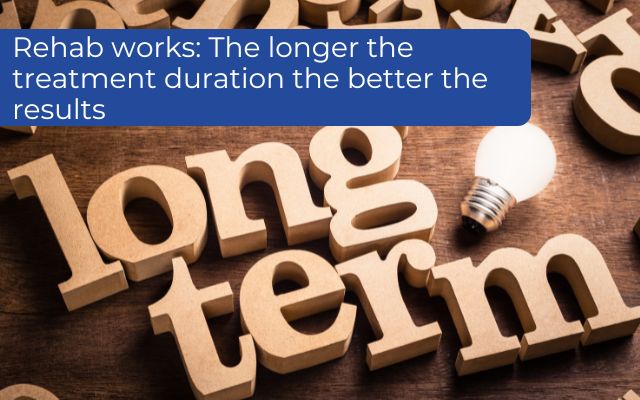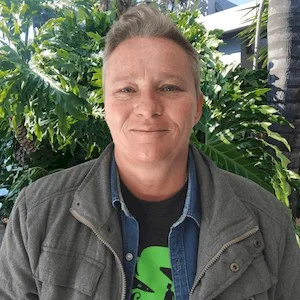
Longer Treatment Improves Chances of Lasting Sobriety
Could extending your stay in treatment significantly increase your chances of maintaining long term sobriety?
Evidence shows that the longer a person stays in treatment, the higher the chances that they will achieve long-term sobriety. But even brief treatment is better than no treatment at all. Aftercare and outpatient programmes are a good idea for those unable to spend a lot of time in inpatient treatment and are ways to better a person’s odds of staying in recovery.
- Post 15 in the series 20 things you should know about rehab in South Africa:
What works. This list was compiled by the European Association for the Treatment of Addiction, according to the latest evidence.

Treatment length: The evidence
Different facilities offer different inpatient treatment durations of treatment. Mostly they can be split into
- 21 to 30 days
- 60 days
- 90 days
- Long term: Three months and longer
- Halfway house and sober living which can span from months to even years
Research shows that people with severe addictions should consider going to treatment for no less than 90 days in order to have the best chance of long-term success. A 1999 study conducted on 1605 cocaine users found that 35% of the respondents who were in treatment for fewer than 90 days reported cocaine use during the following year. This was compared to only 17% for study participants who remained in treatment for 90 days or longer. Long treatment stays can seem daunting but they could mean the difference between success and failure. It has been suggested that one of the reasons long-term treatment is necessary is because the brain needs time to recovery from the damage caused to it by protracted drug or alcohol abuse.
A study published in 2004 found that women who remained in treatment for six months or more had very high treatment success rates: Up to 70% of these women were still clean and sober one year after being discharged from treatment. The study found that shorter durations of inpatient treatment resulted in much lower treatment success rates. Another study found that patients who remained in residential treatment for eight weeks or more were much less likely to be readmitted to rehab in the future as compared to those who spent less than eight weeks in care. Specifically, those using methadone maintenance therapy for opioid addiction should be treated for a minimum of one year.
However, evidence shows that most addicted individuals need a minimum of 90 days of treatment to successfully overcome their substance use problems. Additionally, the longer the stay, the more the chances of success increase.
Start Admission Now
Fast authorisation and a confirmed bed reduce delays—early treatment is linked to better outcomes.
Some treatment is better than no treatment
While it is advisable for people with addiction to stay in treatment for a minimum of three months, many individuals are simply unable to remain in treatment this long. This can be due to employment, caregiving or financial responsibilities. If you are in this position, don’t worry because all is not lost.
Research shows that any treatment is better than no treatment and there are many people who find long-term recovery after shorter stays in treatment. Individuals who are only able to stay in treatment for a few weeks can still benefit from a medically-supervised detox programme. For many individuals, detoxing outside of a treatment centre or health facility can be dangerous and deadly. Longer stays are more advisable if a person relapses after being discharged from a shorter treatment duration as this is an indication that the individual need’s a more intensive approach.
Aftercare and outpatient options should be considered
Aftercare is any kind of programme that continues to provide care after an individual is discharged from treatment. This can include outpatient care, sober living, group therapy or counselling. Aftercare greatly reduces the rates of relapse and treatment readmission.
Research shows that the chances of relapse are highest during the first few months after leaving treatment and that aftercare programmes greatly reduce this risk. Outpatient programmes are another way to increase the chances of long-term sobriety for individuals who are unable to spend at least 90 days in inpatient rehab treatment.
An outpatient programme should also be considered after the completion of a 21 day primary care programme. Depending on the length and the quality of the programme, outpatient care has been found to be almost as effective, and in some cases as effective, as inpatient care. Changes provides an array of different treatment options including 21 to 42-day primary care (including detox), secondary care for a duration of 90 days or longer, halfway house options for a duration of months to years as well as outpatient and aftercare programmes. Contact us for an obligation-free assessment today.
Longer treatment stays significantly raise the chances of lasting sobriety, so consider extended care to improve long term recovery and sustained wellbeing.. Changes team counsellors are here to help you.Longer Treatment Stays Boost Long Term Sobriety Rates








